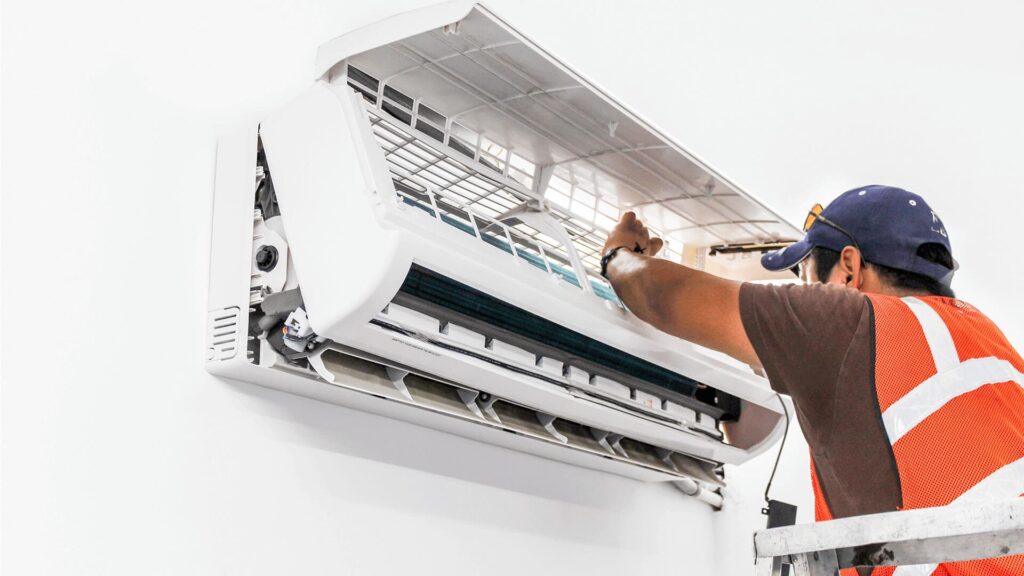In a place like Al Barsha, air conditioning systems are crucial for keeping a suitable indoor climate. AC filters are essential for maintaining air quality and ensuring peak performance. They aid in the system’s ability to supply clean, fresh air by trapping airborne contaminants, pollutants, and allergens. But not all AC filters are created equal. We will examine the many sorts of AC filters frequently used in Al Barsha in this post and comprehend their features, advantages, and appropriate applications.
Introduction
A defence mechanism against airborne impurities is provided by AC filters. They aid in enhancing the quality of indoor air and stop the buildup of dust, pollen, mould spores, pet dander, and other pollutants. Different kinds of filters offer differing degrees of filtration effectiveness and meet different standards for air quality. Let’s examine each filter type in more detail.
Glass Fibre Filters
Fibreglass filters are among the most ac services in al khawaneej fundamental and popular kinds. They are made of fibreglass fibres that have been stacked to create a coarse mesh. For larger particles, they offer some moderate filtration, but they are ineffective for tiny contaminants. Fibreglass filters are reasonably priced and ideal for low-pollution settings.
Filters with Pleats
Due to their folded or accordion-like form, pleated filters have larger surface areas. Better airflow and filtering capacity are made possible by this design. Pleated filters can be found in a variety of MERV (Minimum Efficiency Reporting Value) ratings, which show how well they filter. They are appropriate for locations with moderate pollution levels since they are good at catching tiny particles.
Filters, electrostatic
It is well known that electrostatic filters can draw and collect particles using an electrostatic charge. As air moves through them, the synthetic materials they are constructed of produce static electricity. This charge aids in the capture of dust and allergies. Because electrostatic filters are washable and reusable, they are an economical and environmentally beneficial choice.
The HEPA filter
When it comes to air filtration, High-Efficiency Particulate Air (HEPA) filters are regarded as the industry benchmark. They have a 99.97% capture rate for particles as small as 0.3 microns. Allergens, germs, viruses, and even some volatile organic compounds (VOCs) can all be effectively removed using HEPA filters. People with respiratory issues or those who value the highest level of air filtration are advised to use these filters.
Filters with Activated Carbon
When it comes to eliminating gases, odours, and chemical vapours from the air, activated carbon filters excel. Volatile organic molecules and other hazardous pollutants are adsorbent and neutralised by an activated carbon bed that is present in them. Although they might not be as good at capturing particle matter as other filters, they are crucial in situations with pungent odours or chemical contaminants.
Wipe-clean filters
Washable filters are a practical and economical choice. They are constructed with enduring materials that are simple to clean and reuse. Compared to other varieties, washable filters typically have lower filtration efficiencies, although they are still appropriate emergency ac repair Dubai for locations with low pollution levels. To guarantee optimal functioning, regular upkeep and cleaning are required.
UV Blockers
In order to get rid of germs, viruses, and mould spores in the air, UV filters use ultraviolet (UV) light. These filters Ac Services Al Mizhar use UV lamps to produce short-wave UV-C radiation that damages microorganisms’ DNA and renders them inert. To offer thorough air filtration, UV filters are frequently combined with other filter types.
Filters with Metal Mesh
Metal mesh filters are made of several layers of mesh made of aluminium or stainless steel. They are reusable, washable, and very robust. Metal mesh filters are less effective against tiny pollutants and focus more on bigger particles. In industrial situations where coarse filtration is necessary, they are frequently utilised.
Conclusion
In conclusion, AC filters are essential for maintaining air quality and ensuring that air conditioning systems function well. From basic filtering to high-efficiency purification, many filter types meet various applications. Pleated filters are more effective than fibreglass filters, which are less expensive but provide less filtration. The maximum level of air purification is provided by HEPA filters, which are washable and reusable. While washable filters are more convenient, activated carbon filters deal with odours and chemical contaminants. In particular situations, metal mesh filters and UV filters serve specialised purposes. Making an informed choice based on your unique needs requires that you have a thorough understanding of the many types of AC filters.

